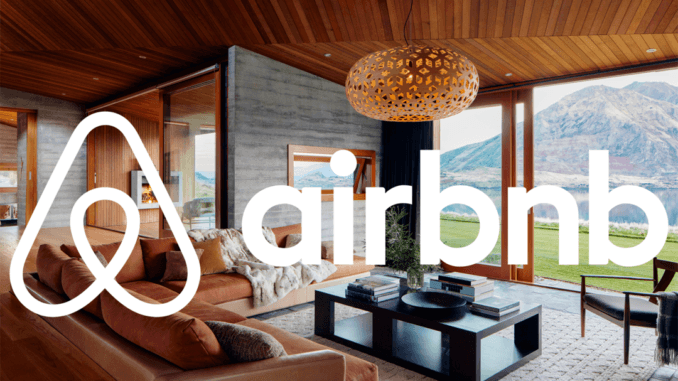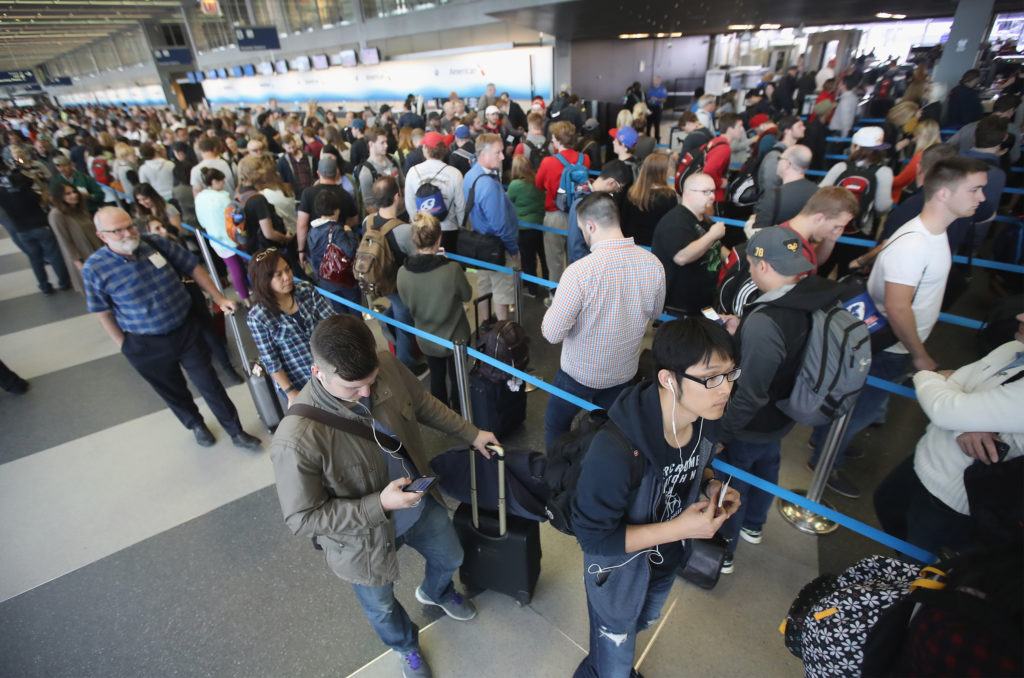Airbnb – Stay in a home away from home wherever you travel

Airbnb has taken travel industry by storm. Twenty years ago letting strangers stay in your home when you are away for vacation seemed unthinkable. Today, staying in a hotel and staying in a local’s home, or “AirBnB-ing”, seem equally favorable to new generation of millennial travelers. Airbnb is not only a platform connecting travelers to locals wanting to rent their apartment short-term, but also a true disruptor of traditional hotel industry.
Airbnb has taken travel industry by storm. Twenty years ago letting strangers stay in your home when you are away for vacation seemed unthinkable. Today, staying in a hotel and staying in a local’s home, or “AirBnB-ing”, seem equally favorable to new generation of millennial travelers. Airbnb is not only a platform connecting travelers to locals wanting to rent their apartment short-term, but also a true disruptor of traditional hotel industry.
I. What is Airbnb?
Airbnb was founded in 2008 as a platform enabling locals to list their homes for short term rental and travelers to have a lodging option alternative to hotels. Today, it is a 2.6 billion dollar travel empire (Business Insider 2018) and the largest provider of rooms available to travelers (Airbnb: 3M, three times as much as Mariott’s 1M) (Str 2019). Along with homes for rent, Airbnb.com allows its users to search through “Experiences”, which include pre-arranged multi destination trips, “Restaurants,” and recently even “Animals,” which stands for experiences where travelers can meet and interact with animals local to their travel destination (e.g., Zoo visit).
II. Value & Interesting elements of the company
While 11 year after its founding, some might have trouble defining what Airbnb actually is, part of its success is defined in what it isn’t. Concretely, Airbnb is not a traditional real estate company. When retail estate players suffered the heights of pain brought about by 2007-2009 recession, Aibnb’s light asset base (they do not own the properties available through their site) and unique value proposition brought its tremendous success. Further its value proposition and initial success is directly associated with the timing of its founding.
Early Days Value for Consumers
To be specific, in 2008 large portion of US population was suffering financial hardships associated with the economic downturn. Common reaction to one’s decrease in certainty regarding one’s family economic future is decrease in spending on luxury goods. One of them could be travel. When one’s job is on the line, idea of paying hundreds of dollar per night to stay in a hotel, no matter how luxurious it might be, seems like an unnecessary evil rather than a wonderful way to spend a holiday.
First interesting element of Airbnb’s value providing strategy was tied specifically to addressing this customers’ pain point. At its origin, Airbnb’s strategy of rolling out this completely new proposition of travel is done, where a traveler stays in a local’s homes as opposed to a hotel, was to position itself as a more affordable alternative to hotels. Their prices were significantly cheaper. This pricing strategy provided tremendous value to money-conscious recession-era travelers.
Early Days Value for Providers
Airbnb also provided a strong value proposition for the home providers. For many Americans, economic struggles associated with the 2007-2009 recession period caused them to be enthusiastic about new potential sources of income. Suddenly, opening your home to a strangers while you are away stopped being perceives as a nightmare scenario and became a blessing of additional earnings. This re-framing of sentiment regarding sharing your personal space with strangers, was another interesting element of Airbnb’s strategy.
Value for Consumers Today
However, today the economy has mostly recovered, so one could ask what value does Airbnb provides its users today that allows it to generate few billion dollars of revenue per year (Business Insider 2018). The question can be answered in two ways. An interesting strategy on Airbnb’s part is highlighting the different travel experience that staying in a local’s home versus a hotel provides. The company has done a great job framing its value proposition as the idea that travel by Airbnb-ing provides one with the authentic “local” experience, as if allowing travelers to experience what living in this destination would be actually like, as opposed to being a traditional, cookie-cutter hotel staying tourist. Secondly, network effect of many destinations in various places around the world is an attractive proposition. For example traveling with Airbnb today, allows one to choose both from a local’s home but also a luxurious cottage in the middle of northeastern woods, which would never be listed on a traditional hotel selection site like Expedia.com. As such Airbnb provides a traveler a whole different portfolio of lodging options. Moreover, by expending its portfolio to Restaurants and “Experiences” allows its customers to have easy access to many potential activities when they travel.
Value of Providers Today
Even though Airbnb is not able to secure exclusivity for its providers, travelers are freely able to multi-home, (as well as its customers as providers can also multi home), the biggest value that Airbnb is able to give to the local providers is the access to 150 M users (MuchNeeded 2019). Moreover, Airbnb has expended its services to restaurants and experiences, it allows for further solidification of network effects: the more options users have from Airbnb the less likely are they to switch. The more options the more value for customers and the stronger the network effect that keeps customers engaged and thus more engaged customers provide better audience for providers.
III. References
- 2018 Business Insider https://www.businessinsider.com/airbnb-profit-revenue-2018-2 Accessed: 10/10/2019
- 2018 Str https://str.com/sites/default/files/2019-07/Airbnb-and-Hotel-Performance.pdf Accessed: 10/10/2019
- 2019 MuchNeeded https://muchneeded.com/airbnb-statistics/ Accessed: 10/10/2019








Very interesting post. As I think through this post and the business more broadly, I am struck by a realization that Society is a third party on the platform and how we think about allocating value to it is likely the key driver of the future of this platform. If we were to focus on the society question, it seems to me that Airbnb actually suffers from scale costs. Because, as the platform grows, the number of housing units removed from traditional rental and purchase markets also grows causing (at very large scale) distortions in those markets that force a societal (re: government) response, which can damage the platform. Platforms such as Airbnb are then faced with a difficult question, how to allocate some of the “value” they create to the societies aggrieved by the negative externalities of their presence and growing success.
It is interesting that Aribnb is no longer necessarily cheaper than hotels, specially in the United States. In other geographies, however, I have found that part of Airbnb’s value creation is one of providing high quality and affordable lodging.
This post reminded me of a case that we had in our BSSE class about Homeaway, a home-rental platform for longer-term renters. While both platforms leverage their locations and inventories as a main competitive advantage, it is interesting to see that lower prices are no longer their customer promise. For example, one of the recent trends in this space is the curation of “added experiences” to the rentals, such as a visit to a CEO’s home in Palo Alto or a home-cooked meal in Paris. However, I’m curious to see if these offerings will continue to be a competitive edge, or if the Airbnb platform will end up reaching a usage plateau in the long run.
Thank you for sharing this very interesting post, I really love this topic, Airbnb never cease to puzzle me. Since they are creating massive waves of gentrification I wonder what kind of “authentic experience” will they be able to offer when all the “authentic people” are gone and entire neighborhoods becomes Disney-fied with hype coffee places and stores to accommodate the growing global cosmopolite citizens. Today, Airbnb is used by professionals as a platform to operate their home leasing activities and not just the home owner they were targeting in the beginning which is highly disturbing city fabrics. Before, hotels location could be defined by planning laws but for urban planners, Airbnb is harder to control. I have seen cities like Paris react to those issues, it would be interesting to see how Airbnb respond, probably growing vertically and taking care of the whole trip experience from door to door could be a good option.
Thanks for the interesting post! I’m a heavy traveler and have used Airbnb many times in different geographies in the past. My primary reasons why I chose Airbnb sometimes are a) authenticity, especially when I go to some really exotic places I would want to travel and live like a local for several days. Most hotels wouldn’t serve this purpose. and b) Airbnb housing provides a better place for social with friends/travel buddies. When I’m traveling with more than two friends we’re naturally leaning towards booking a house or spacious apartment so that we could cook, watch TV, play video games and chat together.
I also find it interesting that over the years, some house owners have become full-time Airbnb housing providers and that the platform gave birth to many professional lodging management companies which have multiple properties listed on Airbnb. They try to provide clean, authentic and cozy housing, but are also charging a rate pretty similar to hotels.